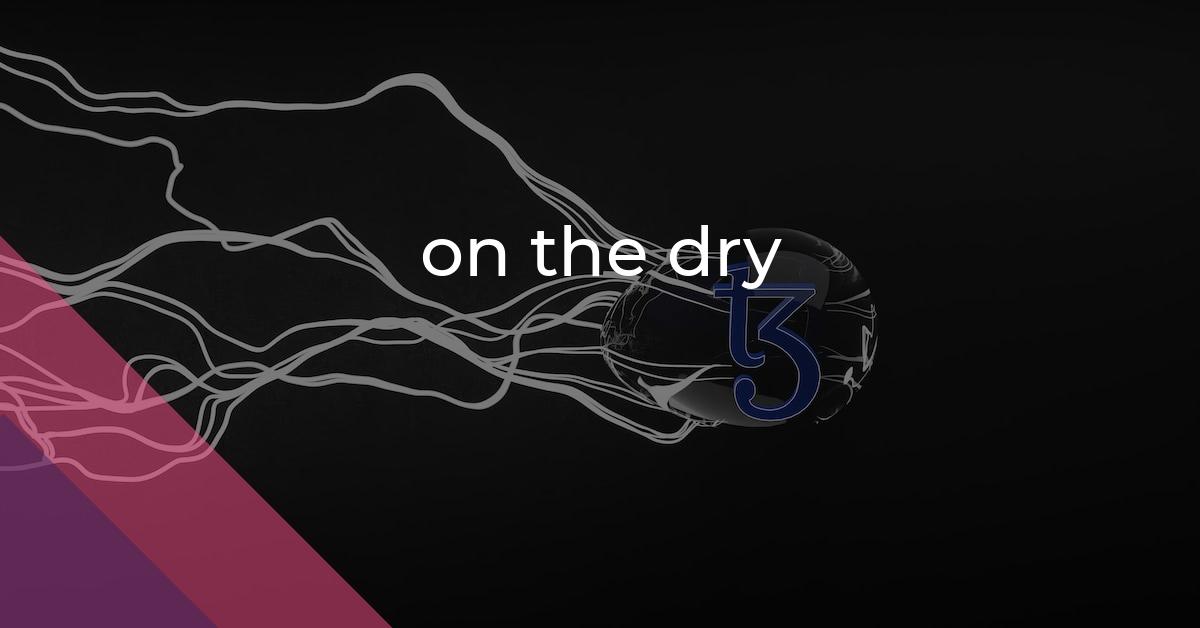on the dry: Idiom Meaning and Origin
What does ‘on the dry’ mean?
On the dry: To be "on the dry" means to abstain from drinking alcohol or to be in a period of sobriety.

Idiom Explorer
"Put the plug in the jug" is an idiom that means to stop drinking alcohol or to quit drinking excessively.
The idiom "on the wagon" means to abstain from drinking alcohol or to be not drinking alcohol after a period of heavy drinking.
"On the table" means something being discussed or considered.
The idiom "on the street" means to be homeless or without a place to live. It can also refer to being unemployed and actively looking for work.
The idiom "on the breadline" means to be in a state of poverty or financial hardship.
The idiom *on ice* means to be postponed or put on hold. It originated from the idea of putting something on ice to preserve it or keep it fresh.
Revealing Sobriety
The idiom "on the dry" is used to describe someone who is abstaining from alcohol or any type of alcoholic beverages. It is believed that this idiom originated in the early 20th century and is derived from the practice of sailors "going on the dry" while at sea. During long voyages, sailors would often be allocated a daily ration of alcohol, usually rum. However, there were times when the ship's supplies of alcohol would run out or be withheld, resulting in the sailors having to go without their daily ration, effectively being "on the dry."
The idiom has since evolved to be used more widely to describe anyone who voluntarily chooses to abstain from drinking alcohol, either temporarily or permanently. It is often associated with individuals who are trying to maintain sobriety, address alcohol-related health issues, or simply make a personal choice to avoid alcohol altogether for various reasons.
The phrase "on the dry" itself refers to the absence or lack of alcohol consumption. It metaphorically highlights the act of refraining from drinking as if the person is experiencing a state of dryness or aridity from the absence of liquid sustenance.
Usage of the idiom can vary depending on the context and intention. It can be used to describe someone who is actively practicing abstinence from alcohol, such as saying "He is on the dry these days," indicating that the person has made a conscious decision to refrain from drinking. Conversely, it can also be used to describe a temporary state, as in "I'm going on the dry for a month," indicating a temporary period of abstinence.
The idiom "on the dry" is commonly used in informal and colloquial speech, particularly in English-speaking countries where alcohol consumption is prevalent. It serves as a concise and idiomatic way of expressing one's choice to abstain from alcohol without delving into specific reasons or details.
While the idiom itself is well-established and widely understood, it does leave room for interpretation regarding the individual's motivations or circumstances for choosing to abstain from alcohol. This ambiguity lends an air of intrigue to the idiom, inviting curiosity and speculation about the underlying reasons behind a person's choice to be "on the dry."
The idiom "dry out" is closely related to "on the dry" and is often used interchangeably. "Dry out" refers to the process of detoxifying one's body and mind from the effects of alcohol or drugs. It can be used to describe someone who is seeking treatment for substance abuse and is undergoing a period of sobriety to overcome addiction. In this context, "dry out" emphasizes the physical and emotional aspects of recovering from addiction and regaining control over one's life.
On the other hand, "on the wagon" is another idiom related to "on the dry" but with a slightly different connotation. "On the wagon" refers to someone who has made a firm commitment to abstain from drinking alcohol, often after a period of excessive or problematic drinking. The term "wagon" is believed to have originated from the water wagons used during the Prohibition era to transport non-alcoholic beverages. The idiom "on the wagon" implies that the person has successfully climbed onto the wagon, which represents a path of sobriety and away from alcohol-induced problems. It suggests a more permanent or lasting commitment to abstaining from alcohol compared to the temporary nature of being "on the dry."
Both "dry out" and "on the wagon" share the common theme of abstaining from alcohol, but each idiom carries its own nuance. "Dry out" is more focused on the process of recovering from addiction and detoxification, while "on the wagon" emphasizes the commitment to long-term sobriety. These idioms highlight the various contexts and motivations behind choosing to be "on the dry" and offer a glimpse into the experiences and journeys of individuals who have made the decision to abstain from alcohol.
Example usage
Examples of how the idiom "on the dry" can be used in a sentence:
1. After going out drinking every night for a week, John finally decided to go on the dry and give his body a break.
2. Sarah's doctor told her she needed to go on the dry and avoid alcohol for at least a month to improve her liver function.
3. Being on the dry during the party was a challenge for Tom, but he wanted to prove to himself that he could have a good time without drinking.
More "Thirst" idioms
We missed the mark - nothing found.



